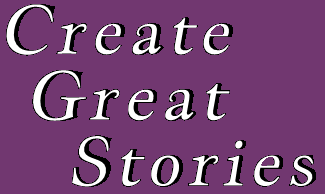You can like or dislike “Literature”
Novels and short stories are generally classified into two categories: Literature and Genre. Neither category is well defined, but they have certain general characteristics. Literature stories are typically concerned with inner turmoil or deep emotions or inward journeys. They don’t have as much action, and the plot’s main function is to expose more of their inner struggles. Ambiguity is common, even at the end of the story. Many times the reader is left to deduce any outcomes and further actions by the characters, using what’s been exposed about the main character’s emotions and thoughts to determine if the character will eventually succeed or fail.
Genre stories, also called mass market stories or popular stories or such, are also concerned with a character’s goals, motivations and conflicts. In contrast with Literature, though, the energy of the story arises from external conflicts. There is far more action, twists, surprises, suspense, and drama in genre stories. There will always be internal conflicts and struggles (and sometimes deep emotion) but the story continues to move forward rather than spending page after page going into the depths of the internal emotions.
The term Genre story itself is a bit confusing, as most stories today fit into sub-genres or mixtures of genres, or are mixed enough to not fit into any genre. However, if the story’s plot and pace keeps moving forward, the story fits into the Genre categorization.
Literature is usually given higher honor by book reviewers and academicians. Genre fiction is many times considered less meaningful and intellectually inferior by these groups. They consider the exploration of deeper internal turmoil and subsequent growth (or degradation), as well as the more difficult intellectual challenge, to be far more worthwhile than stories reliant on action and plot. Since Literature is written to describe the thoughts and emotions as fully as possible, the verbiage is considered to be very important and there is considerable emphasis on interesting prose, very close to poetry or even music.
Most readers prefer genre stories. They want the story to be entertaining as well as thoughtful. They want their characters to not only feel emotions, but to take action. They want interesting, complex characters but also want heightened conflicts, unexpected twists, usually humor, fascinating dialog, and questions that keep making them want to turn the page to find out what happens next.
You can like or love both, or you can like or love only one of these types of stories. If you find yourself fully engaged intellectually and emotionally with Literature stories, then by all means pursue reading and writing stories in that field. However, if the slow pace and long descriptions of thought and emotion do not engage you, don’t feel pressure to read or write Literature-type stories. It’s far more important to read and write stories that excite you than to endure drudgery because it’s supposedly “better quality.”
Creating fiction has many challenges but the rewards can be more fulfilling and profound than any other activity. If the challenge of reading high-brow Literature is an additional challenge that stops all of your progress, stick with the stories you like. It is FAR more important to read and write as much as possible than to dread those activities because you hate the type of stories.
One note: Just because a story is old doesn’t mean it’s necessarily “Literature,” at least by the definition given in this lesson. The Canterbury Tales are centuries old but introspection is scarcely found in any of the tales. The same can be said for the even older Beowulf. Jane Austen and Victor Hugo may have written classics, but their stories would have definitely been considered the Genre stories of their times (even though we would place them in entirely different genres today than the genre definitions then in use.) Most of the classics are great reads once you get past the different sentence phrasing and lengths. Try the classics out and decide yourself which category you feel each author most fits.
One more note: Contemporary Literature is also known as “stories that don’t sell.” Great genre fiction books can sell in the millions. Something to keep in mind whenever someone sniffs that genre fiction is somehow lesser than Literature.
